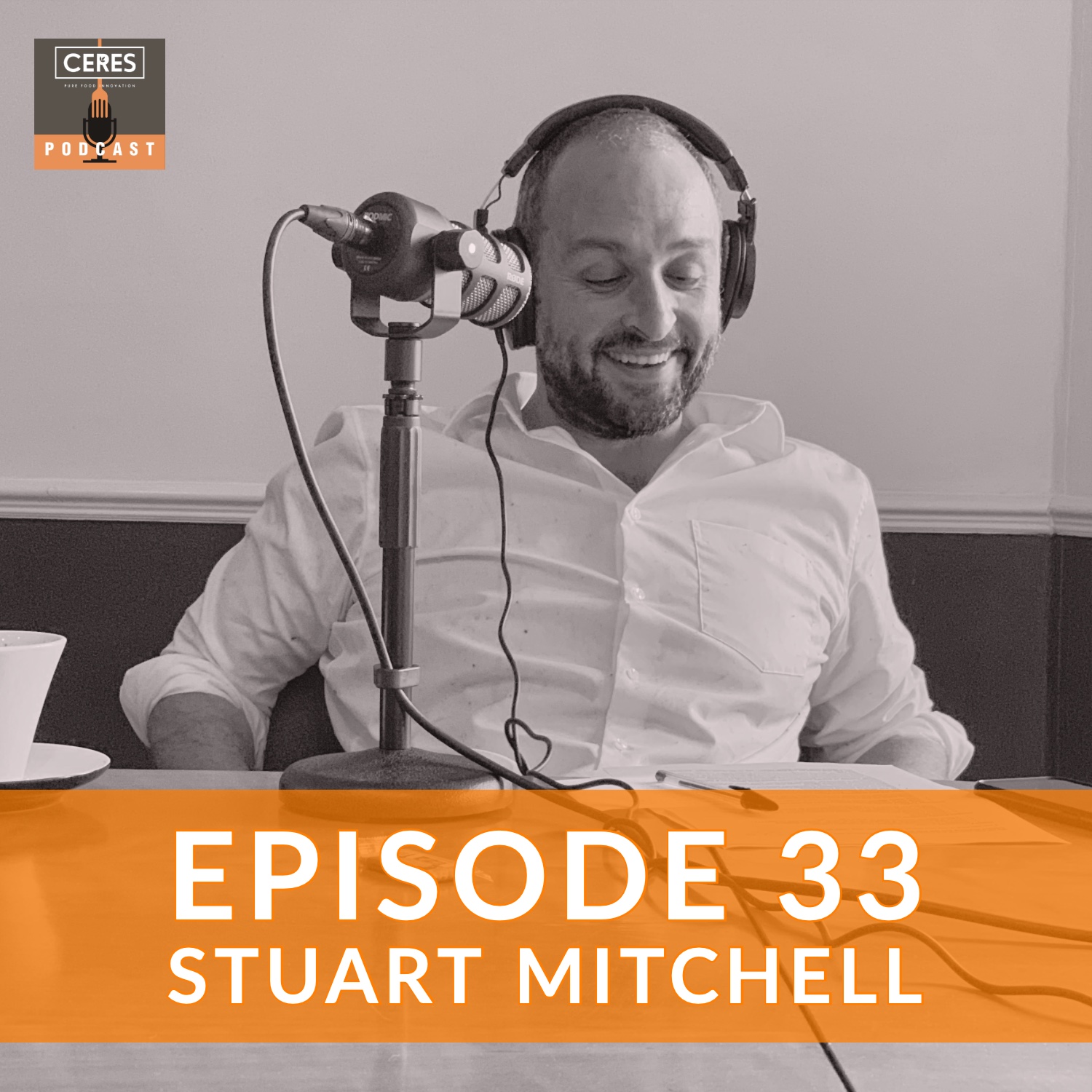Episode 33: From field to fryer with Stuart Mitchell
Posted by Emily on 10th Nov 2019 Reading Time:
Mitchell Potatoes can trace its roots back more than 400 years when the family were crofters - or small farmers - in Bathgate, Edinburgh. A deal with a duke, who happened to be one of the biggest landowners in the UK at the time, saw the family pack up an entire train with everything they owned, from livestock to furniture, and move to Lawford Heath in Rugby, where the Mitchells started growing their first potatoes in England in 1883.

From humble beginnings, Mitchell’s has grown to become one of the largest suppliers of chipping potatoes in the UK, delivering daily to fish and chip shops and catering businesses across England and Wales. In 2001, Stuart Mitchell took over the business as director alongside his brothers Angus and David Jnr.
Now you might not think of the potato industry as particularly innovative, but you’d be wrong, especially where Mitchell’s is concerned. It was the first merchant to introducefixed priced contracts 15 years ago (it now averages about 30,000 bags a week sold on fixed pricing),it was one of the early growers of Markies, and it championed Ramos, which it brought over from Belgium. Providing quality, variety and volume so that customers get the best product at the right time of year has always been at the heart of the Mitchell business.
“We try and make sure we have enough grown by the right grower at the right time,” explains Stuart. “So we’re Ramos heavy at the moment, for example. April, May, June, we’re Markies heavy. We always have Agria through most of the season. We buy in a lot of Challenger, we’re Caesar and Piper heavy in September, in August we like lots of Miranda and Arcade. And we try and make sure we have the majority of something in which we think is good.”
When he’s not building relationships with seed growers or farmers, David ensures the business is doing everything it can to forge long-standing relationships with customers by selling a consistent product - and it’s a full-time job. Stuart explains: “Every load that comes in, we peel it and we check it…so we look at mechanical damage levels, greening, bruising, growth cracks, then we look at the size of the potato, we look at the fry colour, texture, taste.”
We can’t interview Stuart without touching on potato prices, which have remained higher than average across 2019 due to a particularly dry summer and a significantly wetter winter. Although Stuart predictsa good crop going into 2020, it’s how much shops will be paying for it that’s going to be the issue and, for that reason, he’s pro contract, adding: “You’re fixing your costs, which is a great thing to do in our mind when you don’t want too many variables, and fish and chips right now is not easy, is it? When you used to make money on everything, a lot of your profit now comes from your chip sales.”
It’s not just the weather conditions that Mitchell’s is mindful of, it’s witnessing the knock-on effect of changing consumer habits - healthier eating, the rise of the coffee shop and the emerging generation X. “Where a shop might buy 50 bags [of potatoes] a week…they’re now buying 35 bags,” explains Stuart. “So, that’s quite a drop, and this has happened over the last sort of seven, eight years.”
Key to surviving is the ability to adapt, something Mitchell’s has been, and continues to be, very good at. Just recently, for example, it has launched washed chipping potatoes. Aimed specifically at caterers wanting top quality chips, they can equally be used for mashing, roasting, baking and boiling. “I think, to survive, everyone has to adapt, haven’t they?” remarks Stuart.
Stuart talks more about what influences potato prices, the factors at play in growing and storing the perfect crop, and the pros and cons of fresh-cut chips in our podcast. Listen here for free.

